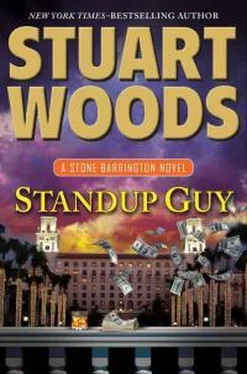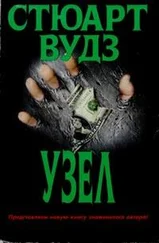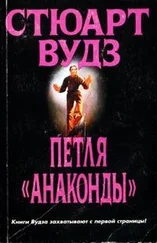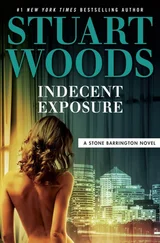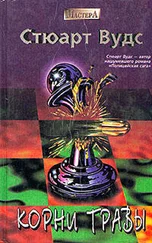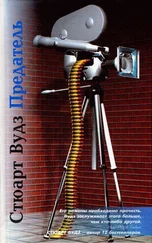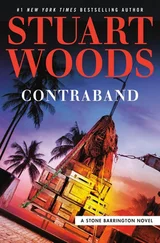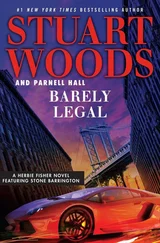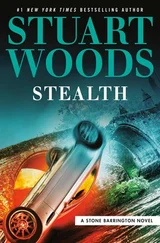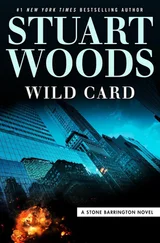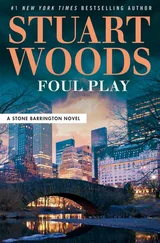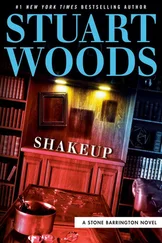He liked the atmosphere; the players, mostly men, chatted amiably with one another, and he picked up snippets of golf lore as he listened.
During his second lesson, they started on the woods, and Fratelli found the driver challenging. Still, he had a good teacher.
When they were done, the boy—Terry—complimented him on his swing. “You know,” Terry said, “most of the people I instruct have played the game for a while, and I have to straighten out their bad habits. You don’t have any bad habits, and you’re a natural athlete, with a natural swing. If we can do two hours a day together, I’ll have you playing pretty good duffer golf in a couple of weeks.”
“I’ve got the time, Terry, schedule me now.”
“Tomorrow morning we’ll play nine holes and start to work on club selection and strategy.”
“I place myself in your hands,” Fratelli said.
• • •
Alvin Griggs walked into the clubhouse at Hialeah and asked for Manny Millman. He was directed to a man dressed in a seersucker suit and a golf shirt, with a large pair of binoculars, sitting at a table with a good view of the track, eating a club sandwich. He walked over and, uninvited, sat down.
“Hi, Manny,” Griggs said.
“We know each other?” Manny replied, wariness in his voice.
“No, and if we have a successful conversation, we are unlikely to meet again.”
“You’re a cop.”
“Federal,” Griggs said, “My name is Al Griggs, but I won’t flash a badge. It wouldn’t be good for your reputation in this setting.”
“I appreciate the courtesy,” Manny said. “What can I do for you?”
“I want to have a chat with John Fratelli.”
Manny was stunned to hear that name again, but he did a good job of screwing up his face and seeming ignorant. “Fratelli? I knew a guy by that name in the joint, but that was a long time ago. Last time I heard anything about him, he was dead.”
Griggs smiled. “Nice try, Manny,” he said. “But you’re not a good enough actor.” Griggs had no idea if Manny knew anything, but he had decided to treat him as if he did and was holding out.
“I got no reason to hold out on you, Mr. Griggs,” Manny said.
Griggs reached into a pocket and pulled out a page he had printed from the Internet, in color. “This is a series 1966 hundred-dollar bill,” he said. “Note the red seal. Seen anything like that lately?”
Manny took a close look at the page, then shook his head. “It’s just a C-note,” he said. “I see them all the time.”
“Yes, but not with the red seal.” Griggs produced a business card and slid it across the table. “If you come across a note like this, and especially if you see Johnny Fratelli again, I’d like to hear about it. There could be a substantial reward in it for you.”
“Mr. Griggs, I think you’re chasing a dead guy, but if I see any money like that, I’ll give you a call.”
Griggs thanked him and left.
• • •
Manny sat and watched him go. This Fratelli thing was beginning to be annoying. He got out his cell phone and called his bookkeeper.
“Yes?”
“It’s Manny.”
“Hey, Manny.”
“You remember I gave you a million a short while ago?”
“A fella remembers a thing like that.”
“How did you distribute it?”
“I shipped all of it to the Singapore bank.”
“Did you retain any of the money I gave you?”
“A payout on a long shot came across my desk, twenty grand. I may have used some of it for that.”
“But the rest went to Singapore?”
“It did, and I can prove it if I have to. Go online and look at the bank statement. You’ll see the deposit.”
“I’ll do that. What was the name of the big winner?”
“Hang on a sec, I’ll see.” He came back after a pause. “Howard Silver. He’s a regular at Hialeah.”
“Thanks.” So there was twenty grand in hot hundreds floating around out there, and Howard Silver, whom he knew by sight, had it.
23
John Fratelli awoke the following morning, and something was nagging at him in the back of his mind. It came to him: IRS. He showered and dressed and had his first shave of the day, then he called New York on his throwaway cell phone.
“Woodman & Weld, Mr. Barrington’s office.”
“Good morning, this is John Fratelli. May I speak to Mr. Barrington, please?”
“One moment, I’ll see if he’s free.”
“Stone Barrington.”
“Mr. Barrington, it’s John Fratelli. How are you?”
“Mr. Fratelli, I’m fine. You sound different.”
“Perhaps so. I have a legal question for you, a hypothetical one: how would a person recently out of sight for many years avoid having the Internal Revenue Service made aware of his presence?”
“Does this hypothetical person have a Social Security number or has he filed returns in the past?”
“He has never had an SSN, nor has he ever filed.”
“Then he should not apply for one, unless he seeks employment, in which case he might want to give some thought to a new identity.”
“I see. What else should he avoid?”
“Any sort of transaction requiring a Social Security number: opening a bank account, for instance, or applying for a loan, opening a department store or gas credit card. All sorts of businesses these days require a Social Security number. Of course, he could decline to divulge that number, because it’s technically private information. That might work with opening a bank account, but not when applying for credit. A lender would deny his application.”
“What about income?”
“Everyone is required to file an annual tax return, Mr. Fratelli, listing income from any source.”
“And if one doesn’t file?”
“Then they would have no reason to come after him, unless someone had reported his status to them. If this person had, for instance, not filed a tax return during his, ah, absence from society, the IRS would have no knowledge of him. Once he filed, though, they would know him forever.”
“Then perhaps he should avoid coming to the attention of the IRS.”
“That would be my advice, hypothetically.”
“Thank you. I’ll send payment for your services.”
“Please, no more hundred-dollar bills.”
“You object to cash?”
“I object to out-of-date cash. I had a visit from the Secret Service after I deposited those hundreds. They’re series 1966 and out of circulation. You can tell by the red seal on the bills.”
“What did you tell the Secret Service?”
“Substantially nothing: attorney-client confidentiality.”
“That was the right thing to do. I’ll send you a cashier’s check.”
“Mr. Fratelli, please don’t bother. You’ve more than compensated me for my time already. By the way, you should know that the Secret Service are not the only people interested in your existence and whereabouts. I had a visit from a retired police detective named Sean Donnelly, who investigated a crime committed at JFK airport some years ago.”
“But you told him nothing?”
“Correct. You should also know that, shortly after visiting me, Donnelly was shot while leaving P.J. Clarke’s in the wee hours of the morning.”
“Killed?”
“No, just winged. He’ll be up and around soon, and as far as I know, he remains interested in your whereabouts.”
“Any word on who shot Donnelly?”
“No, but my assumption is it’s probably whoever ventilated your suitcase. If I were you I would find a way to exchange your funds for new funds.”
“I have already done so.”
“Have you spent any more of the hundred-dollar bills?”
“Yes, I’ve paid my living expenses, but I’ve made an investment which brings me a weekly return, so I won’t be needing to do that anymore.”
Читать дальше
